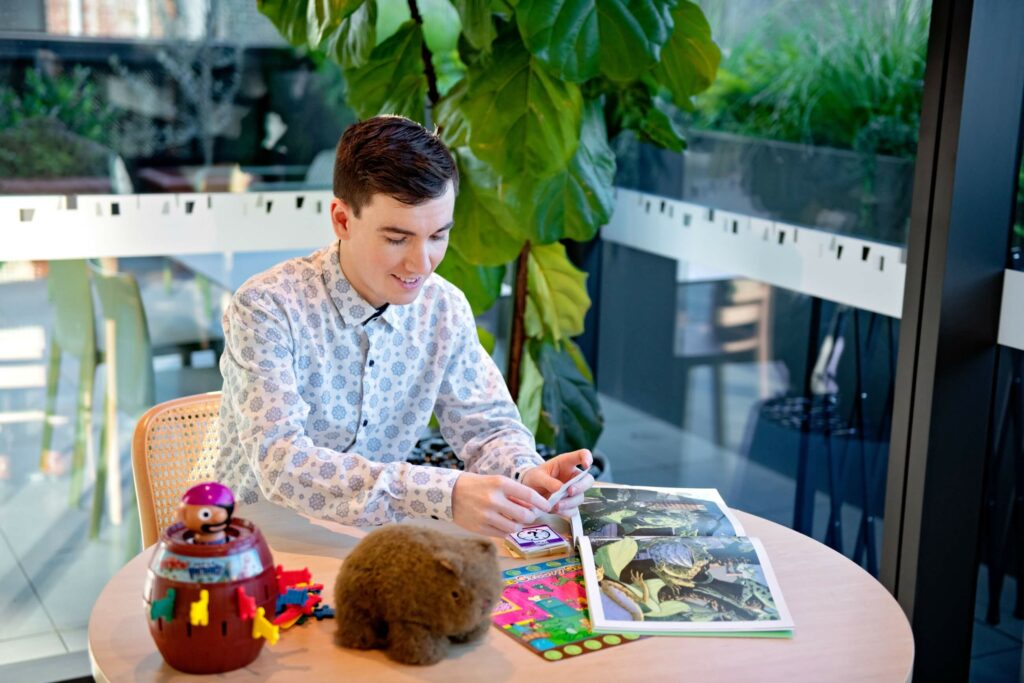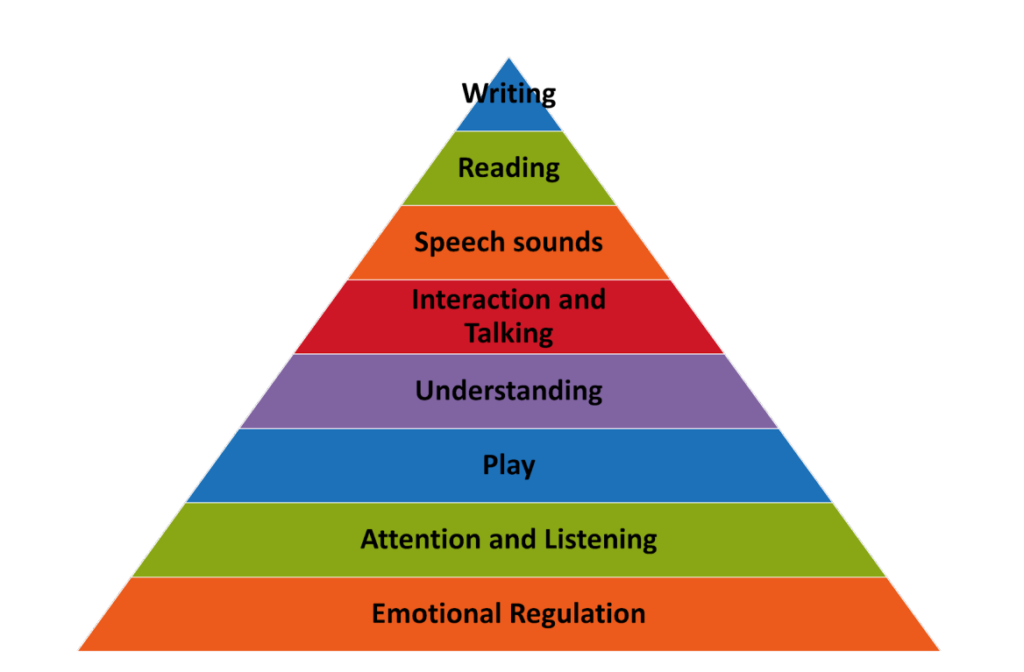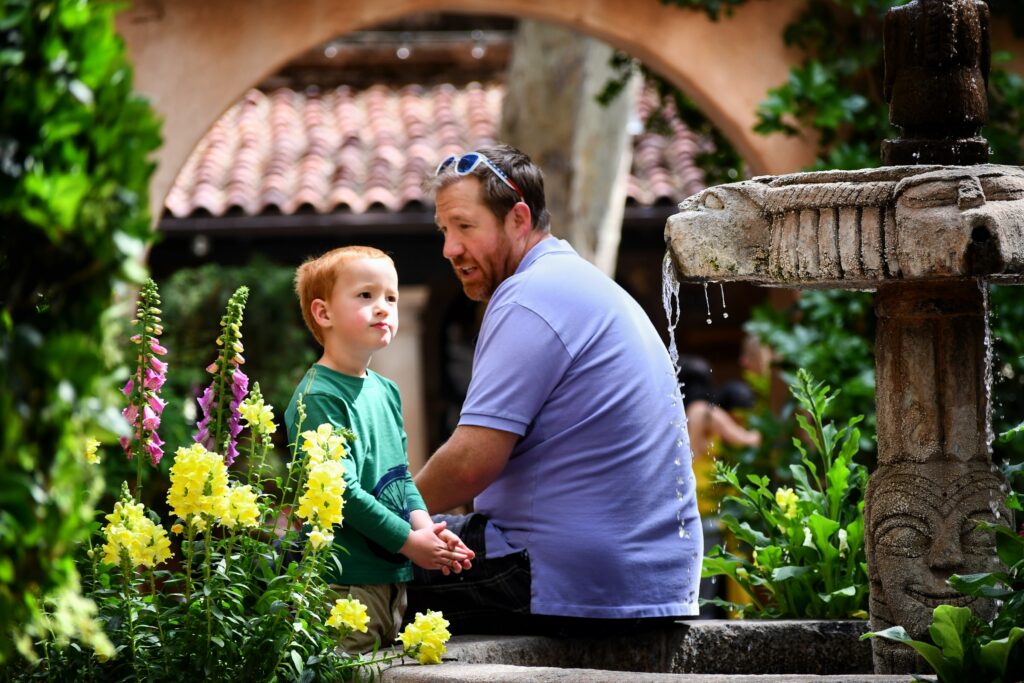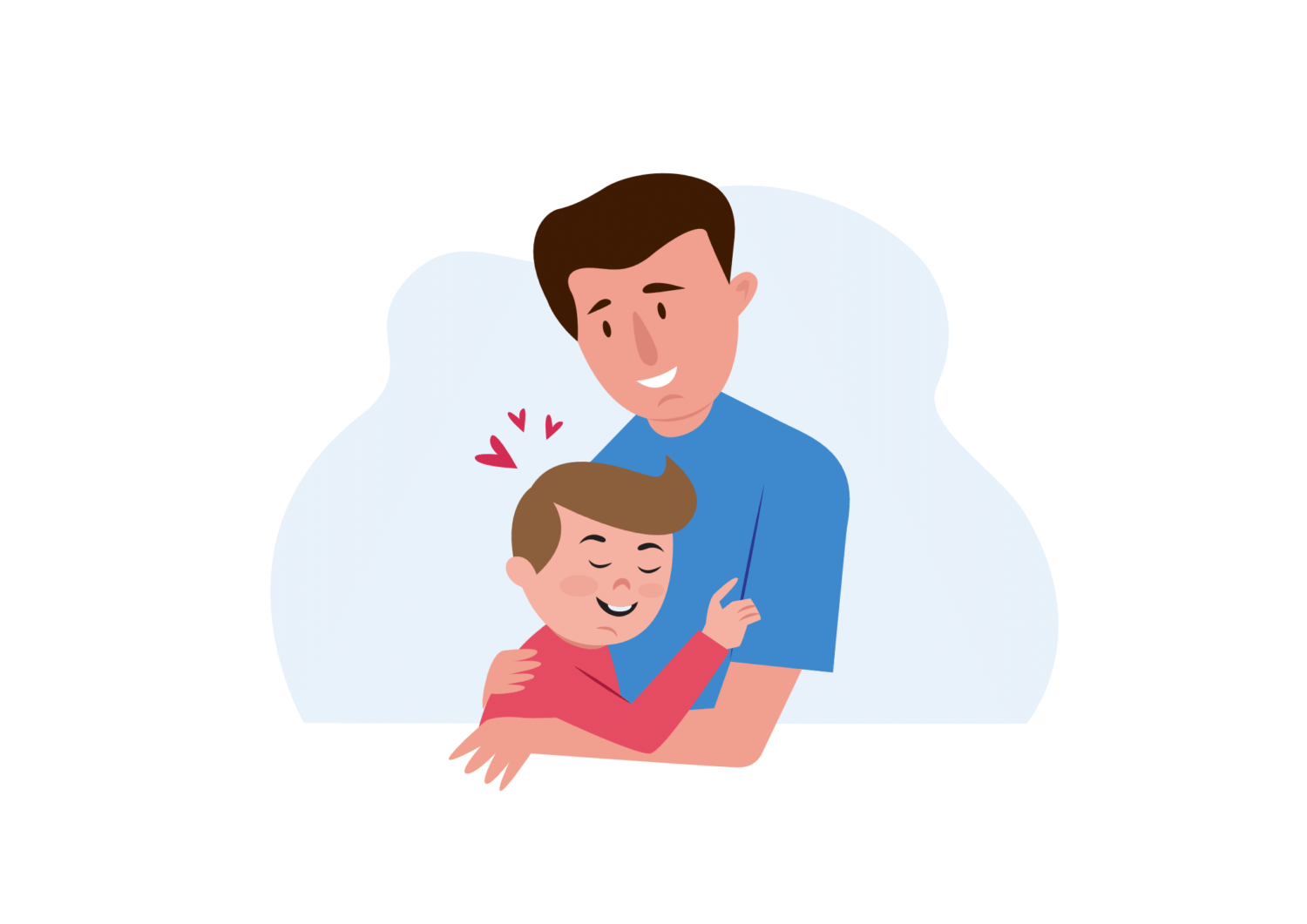Whatever your family’s case, there will be something out there for your child which can offer the best possibilities for success. Programs that I can tailor to your time and budget constraints.
Each child is a unique individual with different strengths and different areas they need to work on. There is no one-size-fits-all program. There are, however, programs that target particular needs.
As a parent, you might be the person that spends the most time with your child. You know them inside out. You are invested in their future and will go that extra mile to ensure they bloom into the best versions of themselves they can be.
As a result, there is an opportunity here to also deliver additional, invaluable, vital therapy. Like all skills, the more you practice, the better you’ll get. Therapy is no different. You may already be aware that the therapy sessions offered at schools are limited. Therapy, while accurately delivered, can be financially taxing on the family budget. The time you spend with your child can help cement the exercises and techniques they learn in school or in private sessions. The more gentle corrections, reiterations, and redirections your child gets, the more they’ll improve.




Let me stress that this does not mean your quality time with your son or daughter becomes all work and no play. There are programs available that cater to every preferred teaching style. Younger children may learn best through play and subtle repetition. Older children may benefit from clever tactics that teach without them realizing that they’re doing work!
Some families may opt to hire and train an allied health assistant that either works independently or makes up part of their home-based therapy team. Some parents may find this option more suitable due to their own packed schedules. Others may prefer using a therapist-trained allied health assistant if they can’t find a therapist in their area who specializes in a particular program. Yet others may find the cost more bearable and have the capability to schedule significantly more therapy sessions a week if they are paying hourly rates to an allied health assistant.

Paediatric Speech Pathlogist
WWhatever your family’s case, there will be something out there for your child which can offer the best possibilities for success. Therapy and programs that I can tailor to your time and budget constraints
If you’d like to book a FREE consultation here, I’ll be able to recommend a suitable program, components, and style for your circumstances.
If we’ve already spoken about suitable programs for your child, or you know what you’re after, then you can book a course here.
Parent programs and parent led therapy programs put you in the driver's seat to help your child grow their skills and development. It lets you learn how to help your child yourself. In parent programs and parent led therapy programs you are not limited to the number of therapy hours your child receives. You will be able to use your learning to support your child in their everyday life. Research shows that children learn to communicate best during everyday interactions with the important adults in their lives. Evidence shows that parents learning how to assist their child’s development can be as effective and in some cases more effective than a specialist working directly one-on-one with your child. These programs are evidence-based and cost-effective.
In this approach you will set realistic and achievable communication goals for your child and receive strategies and resources to support your child to achieve those goals. The focus will be on increasing your child’s participation at home, at school, and in the community for long-term success.
When thinking about which therapy and program might be suitable, consider the needs of your child and what the program will offer. Broadly speaking, some skills build on other skills in development and in therapy. For example, you may want to focus on your child’s emotional regulation and attention and listening skills in order to get wide ranging growth in many areas before focusing on something specific like speech sounds. By focusing on the more foundational skills it will make it easier when your child focuses on more specific skills. Think about whether you would like parent training program, a parent-led therapy program, or both. Think about the amount of time you are willing to put in to a program and the amount of time that you have available to put into a program. Some programs require a lot of your and your child’s time while others require less.


In Talk Boost 1, you will help your child to boost their language and communication skills using structured, evidence-based, practical activities that children enjoy. Talk Boost 1 is a program for 4 to 7-year-olds that improves confidence and skills in listening, vocabulary, sentence building, storytelling, and conversation. The program has a workbook for you and your child to complete activities. Book online.

In Talk Boost 2, you will help your child to boost their language and communication skills using structured, evidence-based, practical activities that children enjoy. Talk Boost 2 is a program for 7 to 11-year-olds that improves understanding language, joining in more, taking part in discussions more, and listening more carefully. The program has a workbook for you and your child to complete activities. Book online.

Develop your child’s social and emotional skills, including identifying feelings, perspective taking, social problem-solving, and managing feelings. The program uses emotion based learning to teach children with autism spectrum disorder about emotional understanding and social awareness, in close collaboration with parents and teachers. It is for verbal children with autism spectrum disorder aged 6 to 8 with no intellectual disability or children 8 to 12 with mild intellectual disability. Children may or may not read and can draw simple pictures or write a few key words and can pay attention for at least a few minutes at a time. The program has a feelings kit with workbooks, reusable worksheets, and feelings strength bars. There are three modules in the program with a child workbook for each module. Each module is seven sessions with a one hour parent online training session at the beginning of the module then five 30 minute online parent sessions once a week and then another one hour parent online training session at the end of the module. Modules run during school term. See www.acer.org/au/westmead-feelings-program for more information. Book online.

Develop your child’s social and emotional skills, including identifying feelings, perspective taking, social problem-solving, and managing feelings. The program uses emotion based learning to teach children with autism spectrum disorder about emotional understanding and social awareness, in close collaboration with parents and teachers. It is for verbal children with autism spectrum disorder aged 8 to 14 with no intellectual disability. Children will read and write and can pay attention for at least a few minutes at a time. The program has a feelings kit with workbooks, reusable worksheets, and feelings strength bars. There are three modules in the program with a child workbook for each module. Each module is seven sessions with a one hour parent online training session at the beginning of the module then five 30 minute online parent sessions once a week and then another one hour parent online training session at the end of the module. Modules run during school term. See www.acer.org/au/westmead-feelings-program for more information. Book online.

Story Champs is a language intervention that helps promote the storytelling skills of diverse students. The primary focus of Story Champs is on the development of a strong oral language foundation through storytelling and iit also promotes other aspects of academic language that are essential for school success through information retelling, vocabulary learning, and writing. Book online

Help your child to grow the cognitive and communication skills necessary for successful social interactions. Through activities with you, your child will understand intentions, consider emotions, and master social rules. Available in modules targeting emotional recognition, self-regulation, behaviour, play skills, school rules, perspective taking, basic and advanced conversation skills, conversation topics, non-verbal communication, situational awareness, problem solving, friendship, and self esteem. The programs are sorted into three age groups: kindergarten, primary school, and high school. Resources, including videos, worksheets, and games, are available electronically through the program. Book online.

Help your child to grow the cognitive and communication skills necessary for successful social interactions. Through activities with you, your child will understand intentions, consider emotions, and master social rules. Available in modules targeting emotional recognition, self-regulation, behaviour, play skills, school rules, perspective taking, basic and advanced conversation skills, conversation topics, non-verbal communication, situational awareness, problem solving, friendship, and self esteem. The programs are sorted into three age groups: kindergarten, primary school, and high school. Resources, including videos, worksheets, and games, are available electronically through the program. Book online.

The social skills improvement system is a strength focused, evidence-based, and academic enabling program to grow your child’s social and emotional skills. Assessments and interventions emphasizing desired social emotional skills known to be valued by educators and parents and fully aligned with social emotional domains of self-awareness, self-management, social awareness, relationship skills, and responsible decision making. Practices with decades of published top-quality and independent research to support the validity and utility of the assessments and the effectiveness of the intervention program. Behaviors within the array of common social emotional skills are prioritized for assessment and instruction, thus enhancing both the social and academic outcomes of interventions to achieve a triple-positive impact for students by increasing social emotional skills, decreasing many problem behaviors, and improving achievement. All resources are included. Book online.

Speech Link comes with clear instructions on how to help your child produce and listen for sounds on their own, in words and in sentences. Heaps of resources are included so you’ve got the right pictures and resources for each sound. Speech link also has interactive online listening games to develop good listening, auditory analysis and sound discrimination skills. These fun, engaging games guide the children through 5 different levels from listening to single sounds to identifying sounds at the beginning and ends of words. All resources are included. Book online.

Language Link uses a planned and graduated approach to grow your child's language. There are lower and upper primary school levels, suitable for children aged 4 to 8 years and 7 to 11 years, respectively. It focuses on vital language skills such as listening, sentences, vocabulary, grammar, stories, and making inferences. All resources are included. Book online.
I Can Talk Boost 1
I Can Talk Boost 2
Westmead Feelings Program 1
Westmead Feelings Program 2
Story Champs
Everyday Speech
Bridge of Vocabulary
Social Skills Improvement System - Social Emotional Learning
Speech Link
Language Link


Find out if my offerings are right for your family by contacting me by phone, email, text message, or booking a FREE 15 minute consultation here.
During that initial meeting, we’ll go over your needs so I can recommend a suitable service that you can book. This will either be a diagnostic assessment for your child or parent training session for yourself. If you are unsure about committing to a full course at this stage, I will recommend a single session to get you started so you can develop a “feel” for parent training.


Families may wish to use funding to help pay for the cost of speech pathology. If you already have NDIS funding then you can use your child's NDIS funds for speech pathology training and therapy programs. Children under the age of seven may be able to get NDIS funding based on needing a range of support from multiple professionals such as speech pathologists, occupational therapists, and psychologists. Children under the age of seven do not need a diagnosis to get NDIS early childhood early intervention funding. Typically children above the age of seven do need a diagnosis to get NDIS funding or to continue to get NDIS funding. You may like to get a speech pathology assessment for this purpose. NDIS funds may be managed by the NDIA (agency managed), managed by an external plan manager (plan managed), or managed by yourself (self managed).
Families may also be able to use their private health insurance to cover some of the cost of speech pathology. The amount that is covered depends on the private health insurance company so check with your private health insurer.
Families may also be able to get a rebate from Medicare to cover some of the cost of speech pathology. You will need to get a referral from a medical professional such as a general practitioner (GP) or paediatrician to be able to get a Medicare rebate for speech pathology. A GP can start a chronic disease management plan (previously enhanced primary care plan) or a paediatrician or other specialist can write a referral with Medicare items (typically Medicare item 110 or 116) to cover some of the cost of speech pathology therapy. The Medicare rebate that you receive from a paediatrician or specialist is higher than the rebate from a GP (approximately $55 rebate for a referral from a GP and $77 rebate for a referral from a specialist).
Only one type of funding (NDIS, Medicare, private health insurance) may be used to cover some of the cost of speech pathology services.